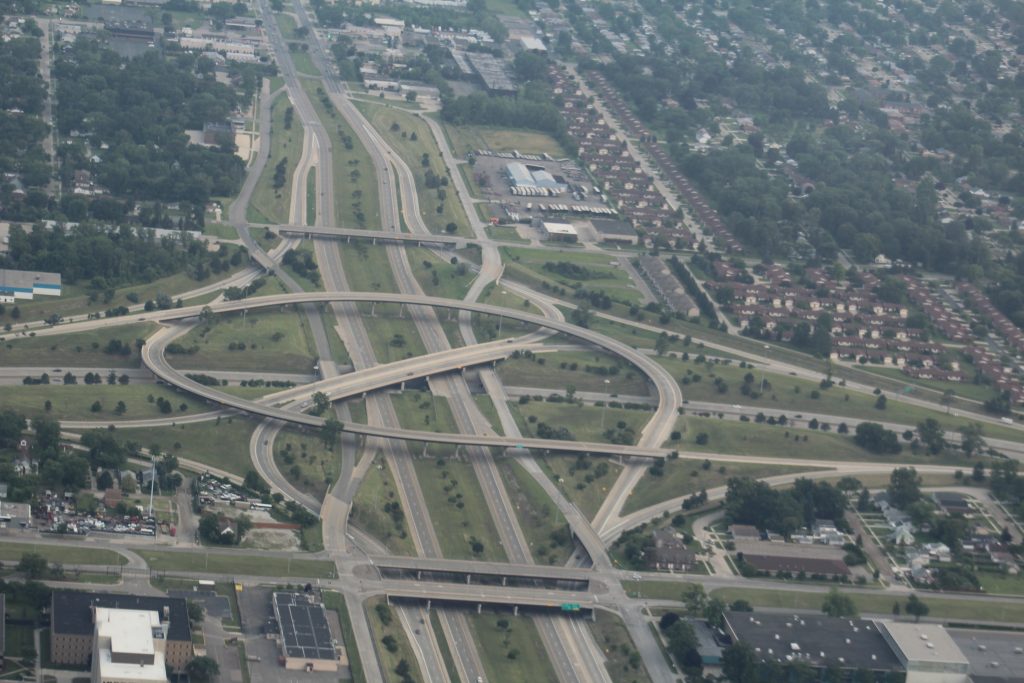Cities Turn to Removing Highways as Form of Revitalization
A New York Times reporter says 28 cities, including Detroit, are considering removing parts of highways to revitalize their cites and reimagine modern urban landscapes.

President Joe Biden’s infrastructure bill, the American Jobs Plan, has put the future of highways at the forefront of many cities’ minds. Many highways built in the 20th century are reaching the end of their lifespan, which has led to debates on how to update the failing infrastructure.
“I think it’s a lot of cities that have lost population over the past 50 or so years are now really looking at, ‘well, what can we do to our city to really bring people back?’” –Nadja Popovich
Now, some urban planners are wondering if there is a better, newer way to look at highways, and wondering if it’s time to remove and reimagine the highways built long ago.
Listen: Nadja Popovich and Professor Robin Boyle on what to do with highways.
Guests
Nadja Popovich is a data and graphics reporter for the New York Times climate desk. She recently worked on a multimedia story for the New York Times titled “Can Removing Highways Fix America’s Cities?” Popovich says when the highways were erected, many hurt the cities they were supposedly meant to serve. “Highways radically reshaped American cities. I think now most of us are used to them that it’s maybe hard to remember that, but they destroyed dense downtown neighborhoods,” she says. “They divided many Black communities and really increased car dependency as well, helping to whisk people away to suburbs.”
Popovich says, in total, she looked at 28 cities considering highway removal, including Detroit with Interstate 375. “I think it’s a lot of cities that have lost population over the past 50 or so years are now really looking at, ‘well, what can we do to our city to really bring people back?’”
Robin Boyle is a professor emeritus of urban planning at Wayne State University. He says it is important to remember that removing a highway does not necessarily remove traffic. “We don’t like freeways and I understand why, but you got traffic moving through it. What happens to traffic?” he says. “It needs a comprehensive review of how traffic moves through the city.”
Boyle points out that when constructing the replacement to much of the current infrastructure, Detroit will have to be respectful of local neighborhoods because there can be a few long-term upsides but many long-term and short-term downsides, such as pollution, noise issues and increase in construction and commercial traffic. “I’m just hoping that when they are finishing the connections to the existing network that they do it sensitively, and they do respect the neighbors that are there and we don’t use the same bludgeon that was done in the early days of the 1950s.”
Web story written by Dan Netter
Trusted, accurate, up-to-date
WDET is here to keep you informed on essential information, news and resources related to COVID-19.
This is a stressful, insecure time for many. So it’s more important than ever for you, our listeners and readers, who are able to donate to keep supporting WDET’s mission. Please make a gift today.
